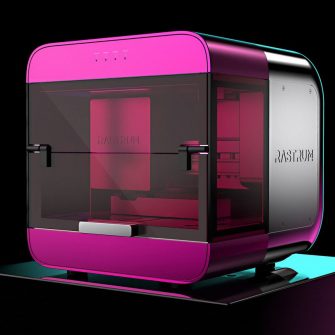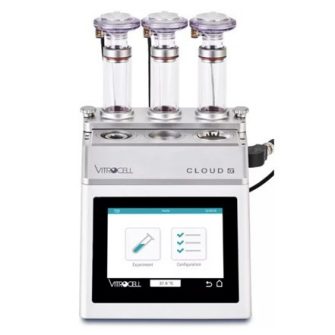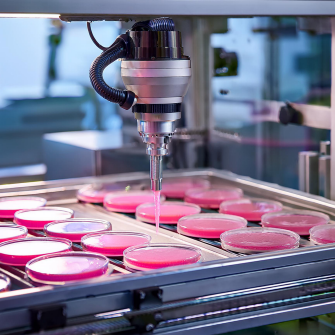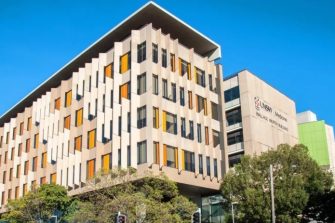Patient-derived Cultures

Description
Patient-derived Cultures are derived from patient tissue and/or fluids to create in vitro” avatars of human biology that mimic the physiology of the patient. Patient-derived cultures can be represented in a multitude of ways, from patient-derived organoids, stratified epithelium at the air liquid interface, single-cell morphologies for co-culture and even whole tissue grown as explants for short-term in situ studies.
Specifications
-
PDOs are generated from tissue and/or fluids collected from patients and healthy donors. Organoids can closely mimic the architecture and microenvironment of the original source and can be extremely useful for modelling development and disease (e.g., cancer, inflammatory disease, neurological disorders, respiratory diseases and genetic disorders). PDOs are commonly used to study biological mechanisms, biomarker identification, and drug screening and development (including Immunotherapeutics).
-
For organs such as those in the respiratory system, patient samples can be grown at the air-liquid interface (ALI) to observe the biological processes in a physiologically relevant environment. A well described model is the nasal epithelium ALI culture, which is routinely used to study respiratory diseases, viruses such as Covid-19 and to evaluate the toxicity of inhaled substances.
-
Explant cultures are a great way to examine the architecture and microenvironment of tissue in situ. By culturing intact pieces of tissue, researchers can perform short-term in vitro studies.
-
Complex patient-derived Organoids can be created by co-culture of organoids with additional cell populations or use of bioengineering tools to more closely represent the human biology. Our team can facilitate your research using co-cultures of patient-derived organoids and cell populations, as well as guidance in combining cell cultures with bioengineering tools, including 3D Bioprinting and Microfluidics.
*Please contact us to find out more. -
Immune cell populations including T Cells, B Cells, NK Cells, Monocytes, Dendritic Cells, Macrophages and Granulocytes can be cultured from primary patient samples. These cells can be isolated through the fluids and/or tissue of patients, to investigate the immune response in vitro and can be co-cultured with other culture models to create “avatars” of immune response.
*Please contact us to find out more. -
Single-cell populations can be isolated and cultured from patient tissue/fluids to create either monocultures, or co-cultures with PDOs to create complex organoid models.
*Please contact us to find out more
Applications
- Developmental Biology
- Disease Modelling
- Drug Screening
- Genetic Studies
- Biomarker Discovery
- Precision Medicine
- Cancer Research
- Tissue Engineering
- Immunotherapy
- Organ-on-a-Chip
Instrument location
3D Culture Facility
Room 2061, Level 2
BioSciences (E26)
UNSW Sydney, NSW 2033
Phone: 02 9348 8212
Email: 3Dculture@unsw.edu.au
Dr Alison Ferguson
-
Phone
040 739 3285 -
Email
alison.ferguson@unsw.edu.au
Parent facility
Explore more instruments, facilities & services
Our infrastructure and expertise are accessible to UNSW students and staff, external researchers, government, and industry.







